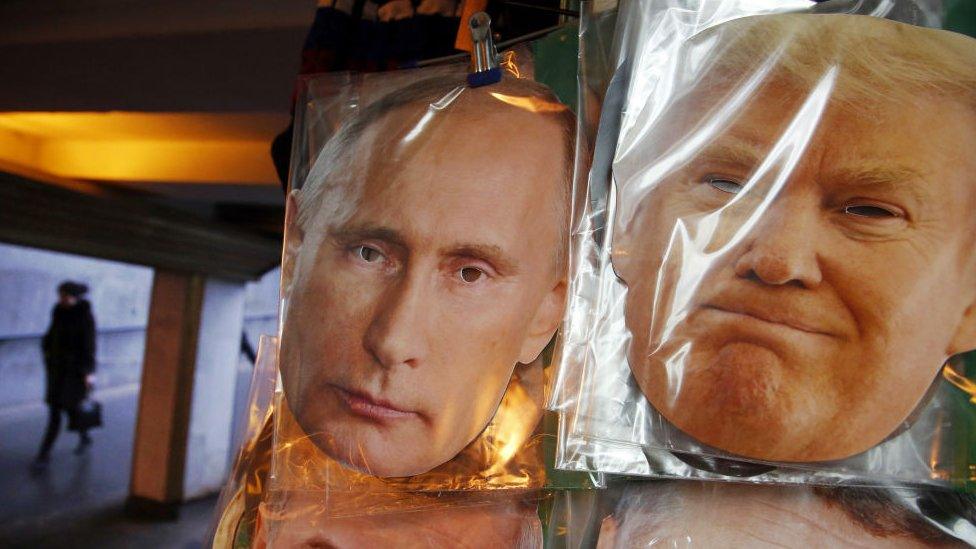Nato needs a grand strategy for Russia, says UK general
- Published
- comments
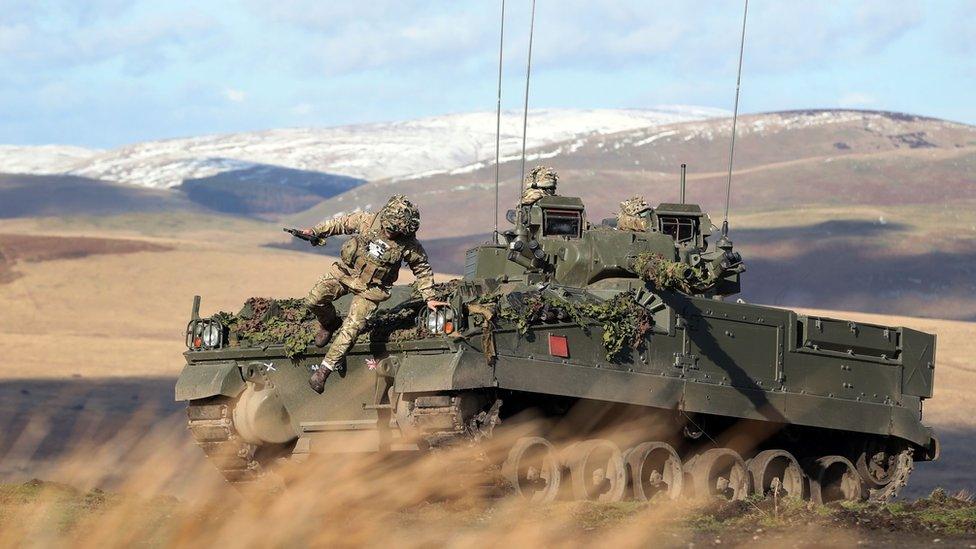
British, French and Danish troops on Nato training exercises in Northumberland
Britain's most senior Nato commander has called on the alliance to step up efforts against Russian cyber attacks, propaganda and political agitation - to keep President Putin in check.
General Sir Adrian Bradshaw told the BBC that the West needed "a grand strategy" to counter these threats.
He said much of Russia's aggressive behaviour was about Mr Putin "protecting his own political power".
Russian officials have repeatedly denied cyber hacking accusations.
General Bradshaw, who next month steps down as Nato's Deputy Supreme Allied Commander Europe, said the combination of Russia's military activity, political agitation and interference in Western elections posed a threat to the alliance that had to be met.
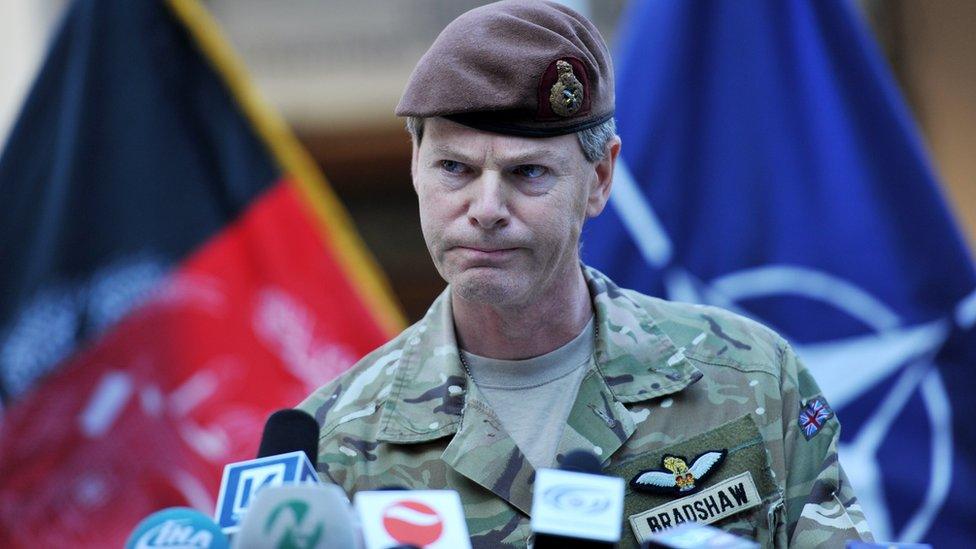
General Bradshaw says a confrontation with Russia could be 'catastrophic'
Nato is already stepping up its military response following Russia's intervention in Ukraine.
Some 5,000 troops are being stationed in the Baltic states and Eastern Europe, including hundreds of British troops who will soon be arriving in Estonia.
General Bradshaw warned that they too should expect "some provocation… a desire to develop stories to our disadvantage and we must be wary".
General Bradshaw described the likelihood of a military confrontation with Russia as low.
But he added because "there is a very small risk and because the consequences would be catastrophic, we have absolutely got to deal with the risks".
Those risks, he believes, have increased because of Russia's willingness to use "all the levers of the state" to achieve its goals.
'Hybrid deterrence'
The West, he said, must respond by using all the tools at its disposal - economic, political, diplomatic as well as military - to deter Russian aggression.
He said Russia's use of so-called "hybrid warfare" required "hybrid deterrence".
General Bradshaw was short on detail. He said economic sanctions imposed on Russia following its intervention in Ukraine had had an effect.
He also suggested the West needed to provide large Russian-speaking populations living in the Baltic states with an alternative to the Russian television channels they watched.
But he said that Nato and its allies needed to take the moral high ground and uphold international rules.
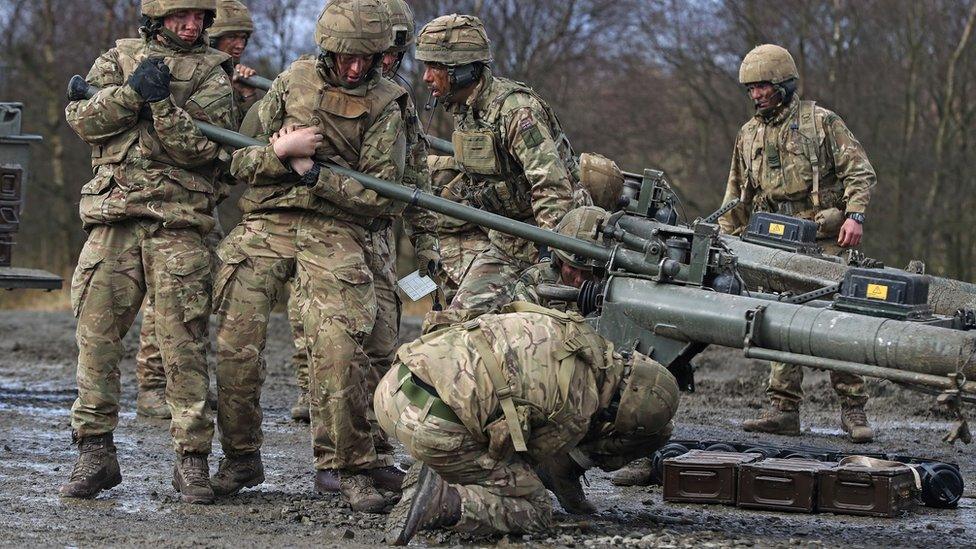
The two-week Nato training in Northumberland involves 1,500 personnel
It comes as UK, French and Danish troops have been taking part an intensive two-week training exercise in Northumberland in preparation for joining Nato's Very High Readiness Joint Task Force.
The UK troops include regular and reserve units from across the country - including Newcastle, North Yorkshire, Edinburgh, Wiltshire and Somerset.
Around 1,500 personnel are taking part, with the 1st Artillery Brigade also hosting visitors from the US, Estonia, France and Poland.
- Published2 March 2017
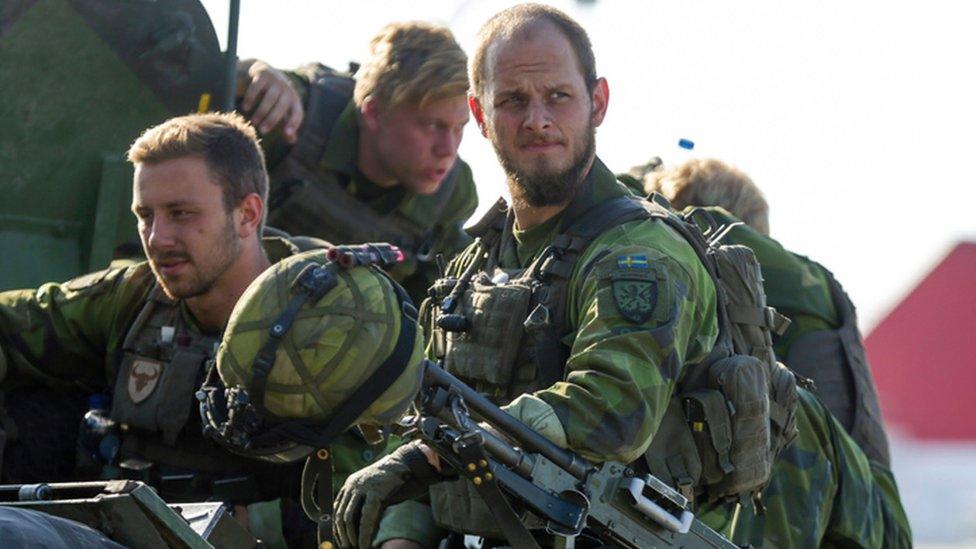
- Published23 February 2017
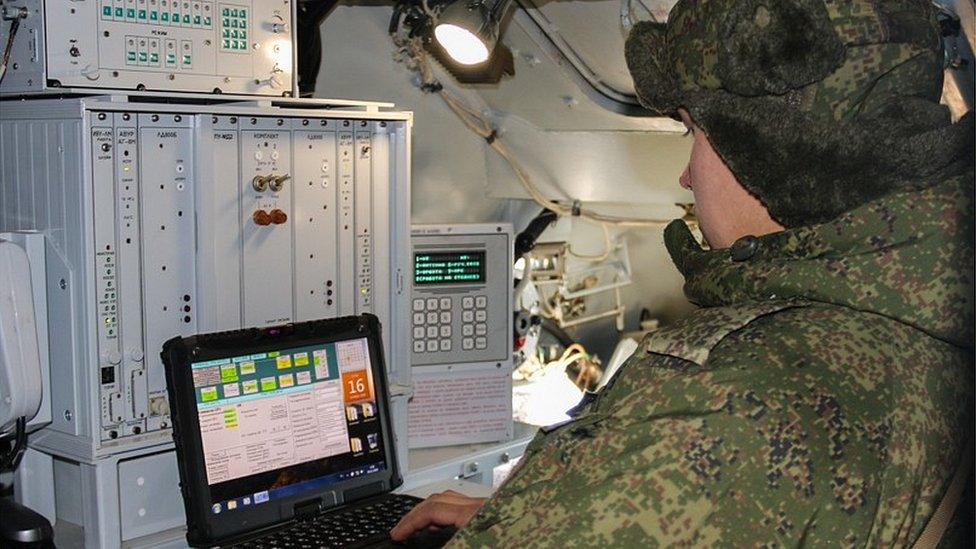
- Published4 February 2016
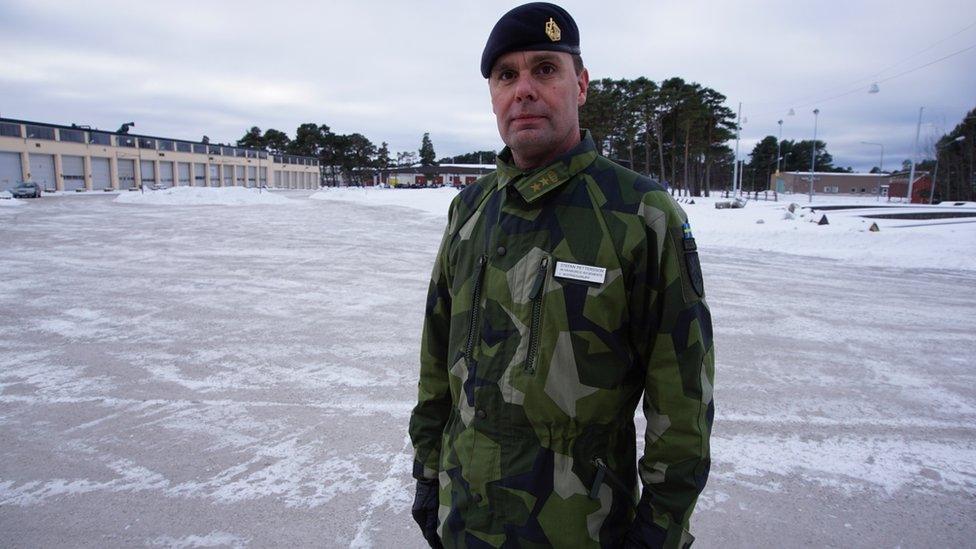
- Published3 February 2017
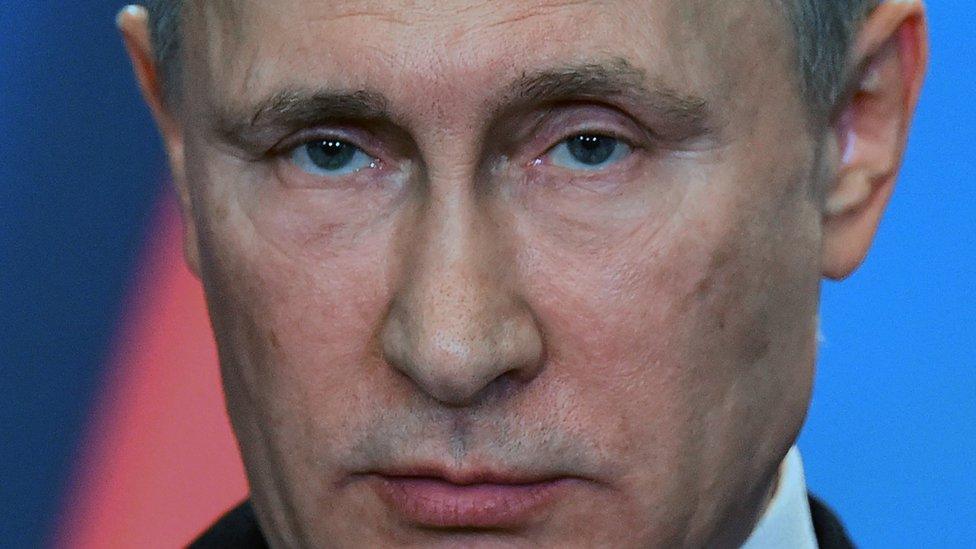
- Published1 February 2017
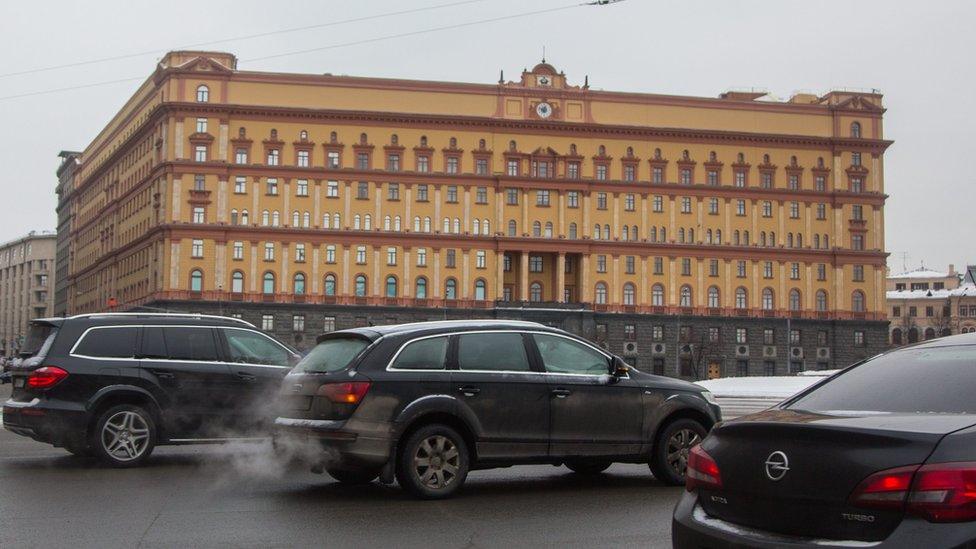
- Published7 January 2017
